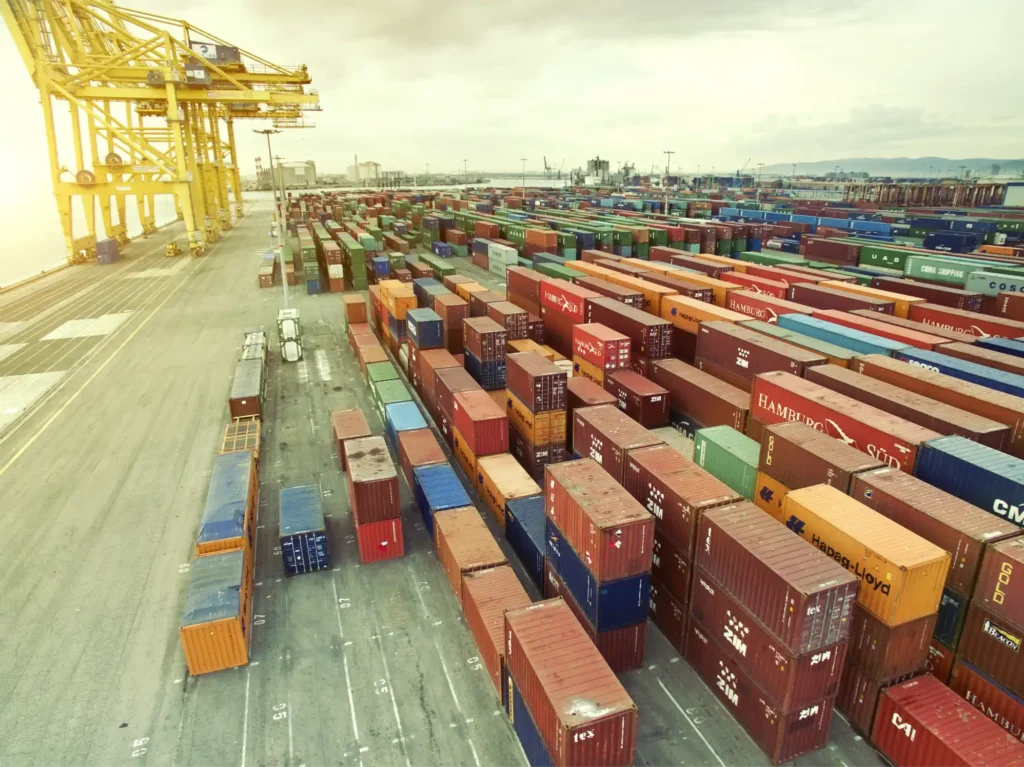Welcome to the fourth of four articles in our 2024 blog series, “Regulations to watch.” In this blog, we’re unpacking all you need to know about GHS in the Asia-Pacific region.
In the dynamic realm of global trade, ensuring compliance with safety regulations is paramount, especially for those dealing with chemical products. Across the Asia-Pacific region, the Global Harmonized System (GHS) aims to create a unified framework for hazard communication. Yet, achieving complete harmony remains a challenge due to varying national implementations. This blog post will unravel the intricacies of GHS compliance in the region, providing valuable insights and actionable steps for product compliance professionals.
WHAT YOU NEED TO KNOW
The Globally Harmonized System (GHS) was developed to establish a consistent and coherent approach to hazard communication worldwide. Its goal is to simplify the regulatory framework, making it easier for countries without existing systems to adopt standardized guidelines. However, the implementation of GHS across the Asia-Pacific region varies significantly. Each country adopts the system according to its specific needs, priorities, and governmental structures. This divergence can complicate compliance for businesses operating in multiple countries.
In the Philippines, three authorities oversee GHS implementation. These include the Department of Labor and Employment (DOLE), the Department of Environment and Natural Resources (DENR), and the Environmental Management Bureau (EMB). Each plays a unique role in regulating labeling and Safety Data Sheet (SDS) requirements. Similarly, Japan mandates GHS labels and SDSs through specific laws to ensure chemical safety.
To complicate matters even further, countries have not implemented GHS revisions in an incremental fashion. China is currently based on UN GHS Revision 4, but in July, a new standard was published, coming into effect August 1st, 2025 aligning it with Revision 8. Meanwhile, Malaysia is expected to transition from UN GHS Revision 3 to 8, but the Department of Occupational Safety and Health (DOSH) has yet to propose an implementation date. Singapore now aligns with Revision 7, effective February 7, 2025, with distinct labeling and SDS requirements. Indonesia’s GHS is based on Revision 4, with voluntary standards aligning with Revision 7, indicating an intent to shift towards more current guidelines.
WHAT YOU NEED TO DO
Understanding the specific requirements of each country’s GHS implementation is crucial for compliance. First, familiarize yourself with the regulatory bodies and their mandates within each jurisdiction. For instance, in the Philippines, the DOLE, DENR, and EMB have distinct roles in enforcing GHS compliance. Knowing their responsibilities will help you understand the framework within which you must operate.
Next, align your labeling and SDS documentation with the appropriate GHS revision for each country. China and Malaysia are moving towards Revision 8, so update your materials accordingly to avoid non-compliance. Similarly, ensure your documents for Singapore and New Zealand adhere to Revision 7, which will soon be mandatory.
It’s equally important to stay informed about any changes in regulations. Countries like Indonesia, with voluntary standards aligning with UN GHS Revision 7, may soon require compliance with newer revisions. As well, with the publication of the draft regulations regularly, it is imperative to consult local industry experts and regulatory bodies for updates to maintain compliance.
WHO THIS AFFECTS
GHS compliance impacts a wide range of stakeholders, including manufacturers, importers, and distributors of chemical products. Companies involved in these industries across the Asia-Pacific region must adhere to each country’s specific GHS requirements to avoid legal complications and potential penalties. Non-compliance can lead to product recalls, brand reputation damage, and financial losses.
This intricate landscape particularly affects small and medium enterprises (SMEs) that may lack the resources to keep up with regional regulatory variations. However, by engaging with local experts and leveraging technological solutions, these businesses can navigate the complexities more effectively.
HOW SPHERA CAN HELP
Once you’ve updated your compliance practices, maintain a proactive stance by participating in Sphera’s regulatory focus groups. These sessions cover regulatory changes, demonstrate how Sphera solutions address them, and allow customers to ask nuanced questions to understand the impact on their operations. Engaging with these focus groups provides valuable insights and facilitates smoother compliance processes, enhancing the value of Sphera’s offerings in marketing and sales.
Leverage Sphera’s automated solutions to simplify compliance tasks, ensuring your labeling and SDS documentation are up-to-date with the latest requirements, while our comprehensive suite of solutions empowers companies to ensure GHS compliance across the Asia-Pacific region. Our platform provides real-time updates on regulatory changes, helping businesses stay ahead of new requirements. With a team of seasoned regulatory analysts, we offer expert insights into local nuances, enabling our clients to adapt swiftly to evolving standards.
Our tailored software solutions streamline the process of creating and managing compliant labels and SDSs. By automating document updates and aligning them with the latest GHS revisions, we help reduce administrative burdens and minimize the risk of non-compliance. Additionally, our platform facilitates collaboration with local regulators, ensuring a seamless compliance process.
WHEN YOU NEED TO ACT
Proactive compliance is the key to avoiding disruptions in your operations. Start by auditing your current labeling and SDS practices against each country’s GHS requirements. Identify any gaps or areas that may need updating, especially considering upcoming transitions to newer revisions, such as those in China and Malaysia.
Prioritize these updates based on deadlines and potential impact on your business. For instance, ensure your compliance aligns with Singapore’s Revision 7 requirements before the February 2025 deadline. Implementing changes well ahead of time will give your company a competitive edge and mitigate risks associated with non-compliance.
KEY TAKEAWAYS
Navigating GHS compliance across the Asia-Pacific region requires a deep understanding of each country’s specific regulations and revisions. The complexity of the landscape means businesses must stay vigilant and proactive in their compliance efforts. By familiarizing yourself with local regulatory bodies, aligning your practices with the latest revisions, and engaging with industry experts, you can ensure smooth operations and avoid compliance pitfalls.
Sphera stands ready to support your compliance efforts. Our comprehensive solutions and expert insights empower you to confidently manage GHS compliance and adapt to changing regulatory landscapes.
Register now to watch the webinar recording
Exploring this topic further can equip your organization with the knowledge needed to excel in GHS compliance efforts. The recorded webinar offers in-depth insights and practical strategies for navigating this complex landscape. Don’t miss out on this valuable opportunity—register now to access the recording and enhance your compliance toolkit.
Relevant Data Points
- GHS Implementation Variance: Across the Asia-Pacific region, GHS implementation exhibits significant differences as countries adopt guidelines at various revisions. For instance, China plans to transition to UN GHS Revision 8 by August 1, 2025, whereas Singapore will enforce Revision 7 by February 7, 2025.
- Regulatory Bodies in the Philippines: The Philippines’ approach to GHS compliance involves three main regulatory bodies: the Department of Labor and Employment (DOLE), the Department of Environment and Natural Resources (DENR), and the Environmental Management Bureau (EMB). Each plays a critical role in enforcing labeling and Safety Data Sheet (SDS) regulations.
- Impact on SMEs: Small and Medium Enterprises (SMEs) in the chemical industry across the Asia-Pacific region face considerable challenges due to resource limitations and regional regulatory variations. Engaging with local experts and leveraging technological solutions become essential strategies for these enterprises to remain compliant.
Solutions in this article
Latest insights from Sphera

Sphera Supply Chain Risk Report 2026

The Confidence Paradox in supply chain risk: why near-universal assurance coexists with persistent loss



